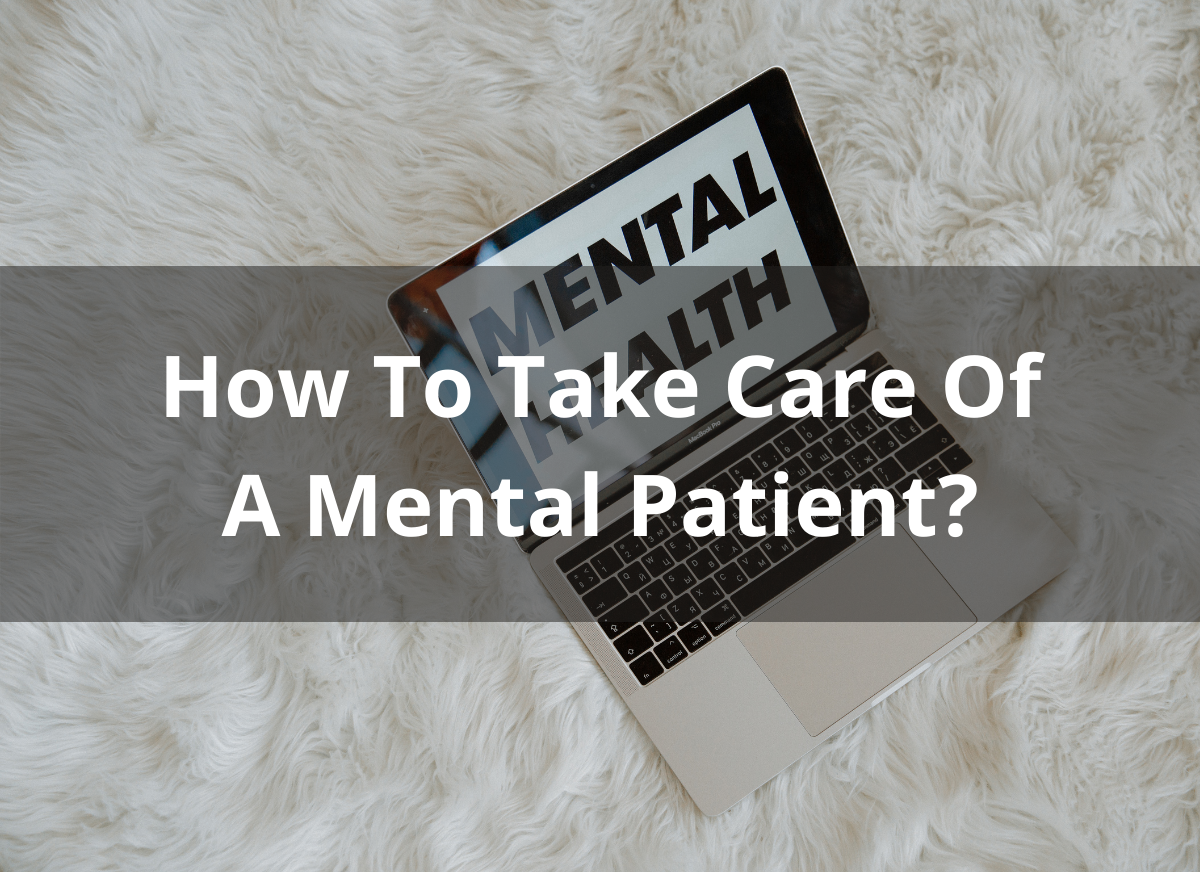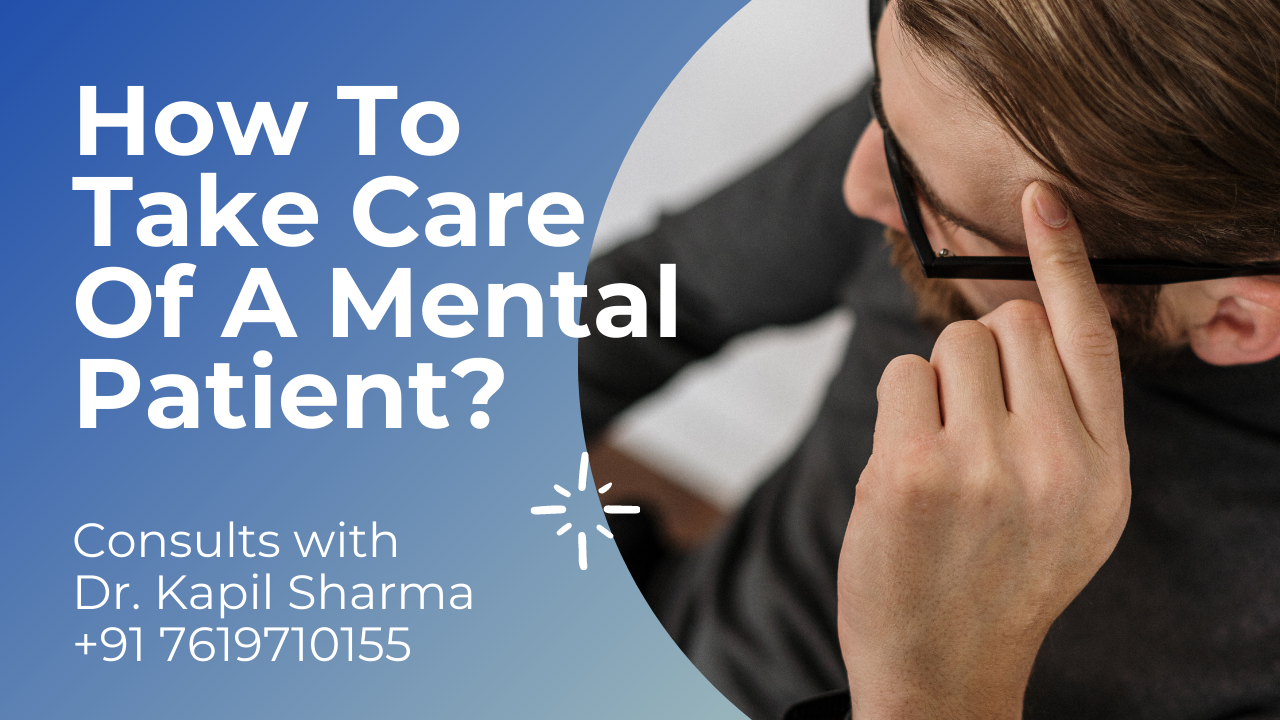
How To Take Care Of A Mental Patient?
It’s important to know and understand how one should provide care to a person with a mental health problem. There are hundreds of mental health problems, so every patient with mental health problems is unique. Care of a mental patient is a little bit different from a patient with a physical problem. Mental health problem needs a holistic and integrative mental health care.
Care of a mental patient needs to cover all aspects of health for a holistic approach towards a mental patient. Generalized treatment of mental problems can’t provide desirable results. Every patient has a different background of social status, economic status, cause of mental stress, gender, age, a coping mechanism, support system, etc. Complete recovery from mental problems needs gentle guidance to identify its cause and care to develop healthier coping mechanisms. The difficult journey towards mental wellness can be facilitated with holistic mental health care.

If a patient feels comfortable and safe, healing steps let them shed stressful memories and experiences. Continuous efforts result in emotional freedom and psychological healing from the stress of a mental illness. To understand the care of a mental patient it’s important to address his mental state.
Care can be provided by family members as well as by Psychiatrists. Sometimes mental illness may become a chronic illness, in this situation supervised Psychiatric care by the family is a better option. In this situation, caregivers get the patient regular consultations with the best Psychiatrist in Jaipur.
Sometimes mental patients need long-term hospital admission to assess and regular psychological counseling therapy or psychotherapy for a better outcome. Regardless of caregivers’ medical knowledge in psychiatry and psychological illnesses their role is pivotal in treating their patient. Patients with mental illness may display a wide range of symptoms and signs, e.g.despondence, sadness, nervousness, suspiciousness, aggression, or violence.
Care givers must understand that these symptoms and signs are because of mental illness. These behavioral problems are neither intentionally produced nor enjoyed by patient. A patient with mental illness may require care givers to adopt the following strategy:
– Assess the current mental state of the patient everyday and regularly.
– Establish a positive communication with the patient.
– Build the rapport for positivity.
– Build a friendly relationship with the patient.
– Use language that shows respect and consideration.
– Provide sympathetic and sensitive care
– Provide patient-centred mental health care.
– Consult with knowledgeable mental health doctor Psychiatrist.
– Entertainment and engagement to leisure activities must be addressed eg. newspaper, magazine, storybooks, poetry, drawing, puzzle-solving, singing, dancing, TV, etc.
– Refer a patient to community services and vocational training.
Care giver should start keeping a diary to have their daily notes regarding mental, psychological and physical symptoms. These notes should be informed to psychiatrist at the time of regular consultation.
Patients with mental health problems are often considered as difficult to manage by a layman due to lack of proper communication, lack of knowledge, and guidance Care giver should not judge the patient because of the patient’s abnormal behavior. Care should be given in a respectful way.
People with mental disorder suffer from disturbances in their thoughts, emotions and behavior, which may affect their ability to struggle with daily life situations and obligations.
These are the common mental illnesses:
– Bipolar disorder.
– Anxiety disorder
– Insomnia
– Eating disorders: binge eating, anorexia nervosa.
– Obsessive-compulsive disorder OCD
– Panic disorder / panic attacks.
– Personality disorders: Borderline personality Disorder, narcissistic personality Disorder, anti social personality Disorder, .
– Posttraumatic stress disorder PTSD.
– Mania
– Dementia: Alzheimer’s
– Parkinson’s disease
– Conversion disorder
– Migraine Headache
– Somatoform disorder somatization disorder
– Addiction: alcohol, cannabis/ weed, internet addiction, porn addiction, gambling addiction, smack /heroine / brown sugar/ drugs, cocaine.
Proper care of a patient with mental illness has great impact on outcome. Compassion with care improves the chances of a better outcome. Caring person should continue their practical experience and education so that they can learn more about how to identify mental illnesses and how to improve skills for patients with mental patients.

